Yoke | Ζυγός (zygos) | Noun
Etymology and Semantic Analysis The word ‘yoke’ in English is a direct translation of the Greek word ‘ζυγός’ (zygos), signifying an instrument used to join two animals, typically oxen, together for the purpose of plowing or pulling a load. This concept is present throughout the Bible, symbolizing a range of meanings from oppression and burden […]
Dying | ἀποθνῄσκω (apothnēskō) | Verb
Etymology and Semantic Analysis The English term ‘dying’ originates from the Old English ‘dēag,’ gradually evolving into the Middle English ‘dyen.’ In the New Testament, the Greek verb ἀποθνῄσκω (apothnēskō) is frequently employed, translating to ‘to die,’ ‘to pass away,’ or ‘to cease to live.’ This term appears in significant contexts, primarily highlighting the physical […]
Dominion | κυριότης (kyriotēs) | Noun
Etymology and Semantic Analysis The term ‘dominion’ finds its roots in the Old French ‘dominion,’ which originated from the Latin ‘dominio,’ denoting ownership or control. In the Biblical context, especially in the New Testament, it translates to the Greek word κυριότης (kyriotēs), which signifies lordship or sovereign power. This term occurs in passages like 2 […]
381 AD The Nestorian Controversy Unveiled
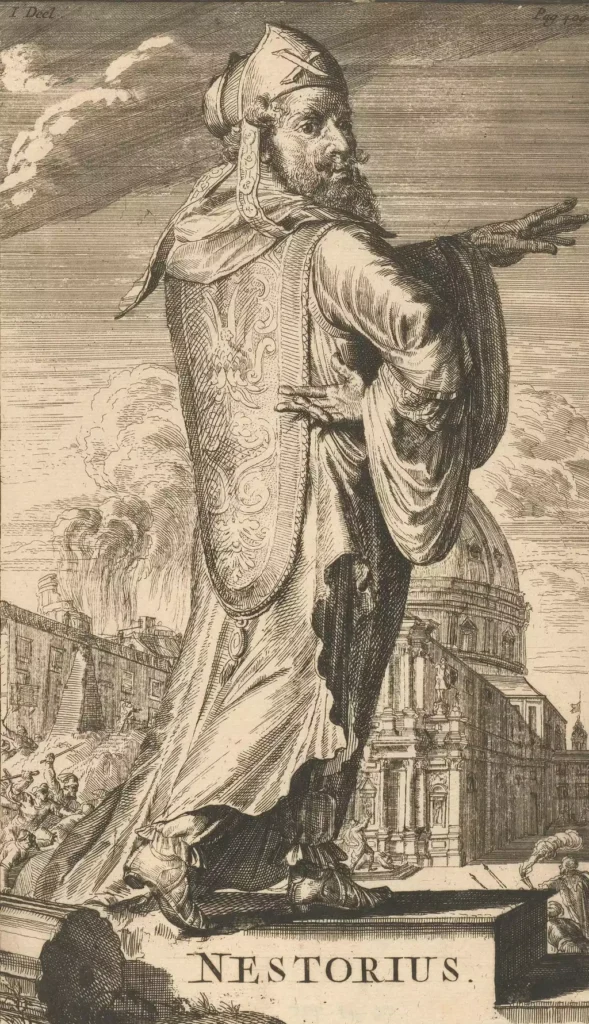
In 381 AD, the theological landscape of Constantinople was forever altered by the ascension of Nestorius to the patriarchate. Nestorius, a figure shrouded in doctrinal controversy, provocatively emphasized a stark disunion between the divine and human natures of Christ. This period marked not only a significant epoch in religious discourse but also a tumultuous chapter […]
Origen of Alexandria: Visionary Theologian
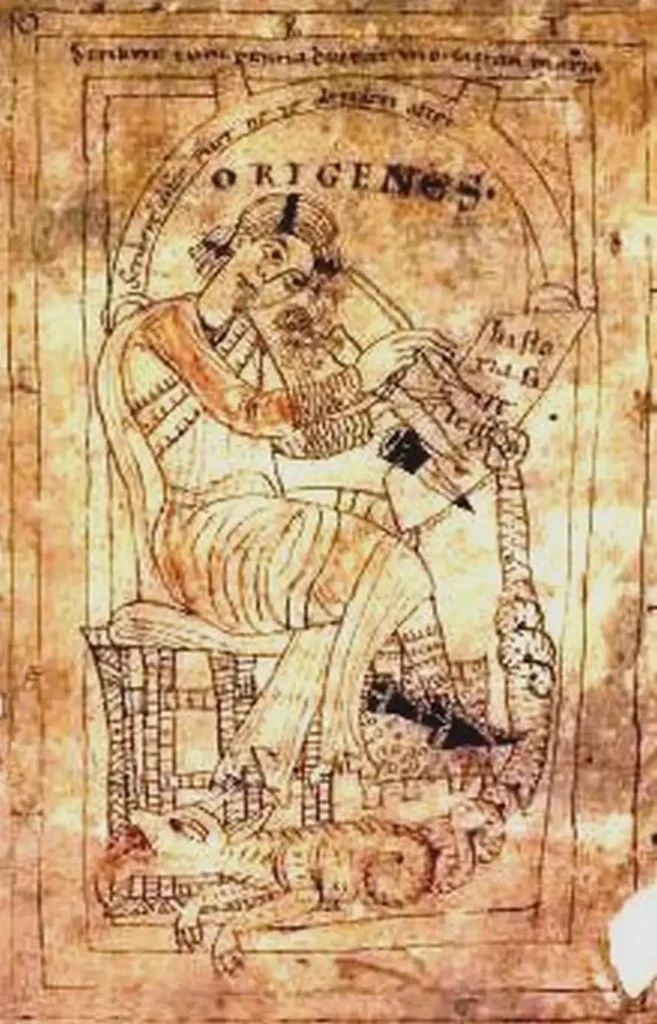
Born in 184 AD, Origen of Alexandria was a figure of monumental importance in early Christian theology. His prolific work, especially around 250 AD, established the bedrock for systematic theology and biblical exegesis. As the founder of the Catechetical School of Alexandria, Origen melded intellectual rigor with spiritual depth, offering an integrative approach to understanding […]
Darkness | σκότος (Greek) | Ηoshekh (Hebrew) | Noun
Etymology and Semantic Analysis The English term “darkness” originates from the Old English word “deorc,” denoting the absence of light. In Biblical contexts, it is primarily translated from two words: the Greek “σκότος” and the Hebrew “חושך” (Hoshekh). The Greek “σκότος” appears in the New Testament in various contexts, often metaphorically to represent spiritual ignorance […]
Tertullian: Polemics and Piety Interwoven
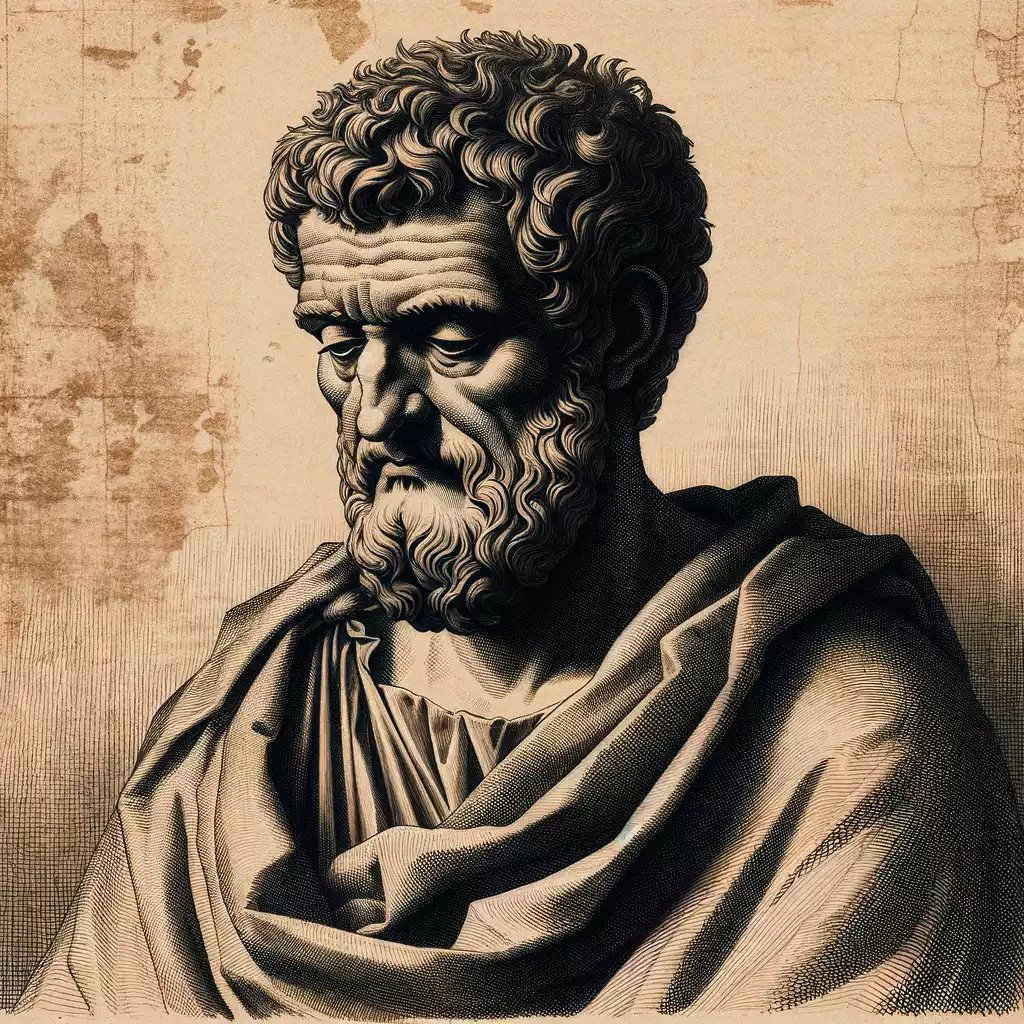
Tertullian, a titan in early Christianity’s chronicles, lived circa 155 to 240 AD. His odyssey, from rhetorical eminence to ardent Christian apology, has enthralled academics and believers. A native of intellectual hub Carthage, Tertullian’s initial exposure to Roman culture and ideals profoundly molded his worldview. His acceptance of Christianity constituted a pivotal turn, ushering prolific […]
Feast | εορτή (Greek) | Noun
Etymology and Semantic Analysis The English word “feast” is derived from the Middle English “feste,” which is rooted in the Latin “festa,” meaning a religious festival or celebration. In the New Testament, the Greek word primarily used for “feast” is “εορτή” (eortē), denoting a religious festival or a day set apart for rejoicing. This term […]
Biblical term ‘fall’ | πτώσις (Greek, Noun) | מַפָּלָה (Hebrew, Noun)
Definition The English term ‘fall’ encapsulates the concept of a physical descent or collapse, but in the Biblical context, it often carries a deeper, metaphorical meaning of moral or spiritual decline. This notion of ‘fall’ is extensively explored in both the Old and New Testaments, signifying a departure from a state of grace or divine […]
Biblical significance of face | פָּנִים (Hebrew), πρόσωπον (Greek)
Definition The word “face” in the Bible signifies presence, identity, and relational dynamics. It often represents the countenance or appearance of a person and can imply favor, anger, or intimacy. Various Translations In the King James Version, “face” is often used where other translations might choose words like “presence” or “countenance.” For instance, in Exodus […]
Fables | μῦθος (Greek) | Noun
Definition The English word “fables” refers to stories that are not based in fact, often used to teach a moral lesson. In a biblical context, these are tales or myths that may lead people away from the truth of the scripture. Various Translations In the King James Version (KJV), “fables” is the word of choice, […]
451 AD 4th Ecumenical Council of Chalcedon
In the annals of Christian history, few events hold the same weight and consequence as the 4th Ecumenical Council of Chalcedon, convened in 451 AD. Held amidst theological turmoil surrounding the nature of Jesus Christ, the council’s pronouncements would reverberate throughout the centuries, shaping Christian belief and practice for generations to come. Christological Contention The […]
431 AD Third Ecumenical Council of Ephesus
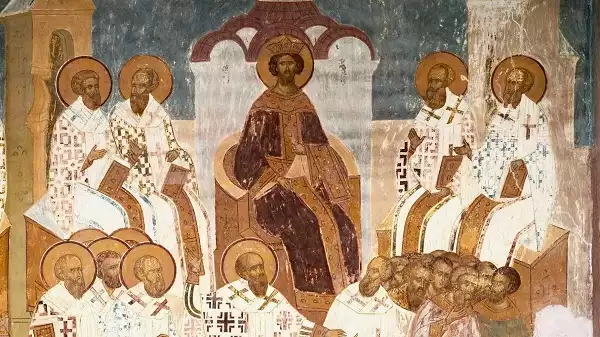
Condemnation of Nestorianism and Affirmation of Mary as Theotokos In 431 AD, a pivotal event in Christian history occurred: the Third Ecumenical Council of Ephesus. This Council, a significant gathering of Christian bishops, was convened to address the growing controversy surrounding Nestorianism, a doctrine named after Nestorius, then Patriarch of Constantinople. Central to the Council’s […]
Acts of the Apostles | Analysis and Historical Context
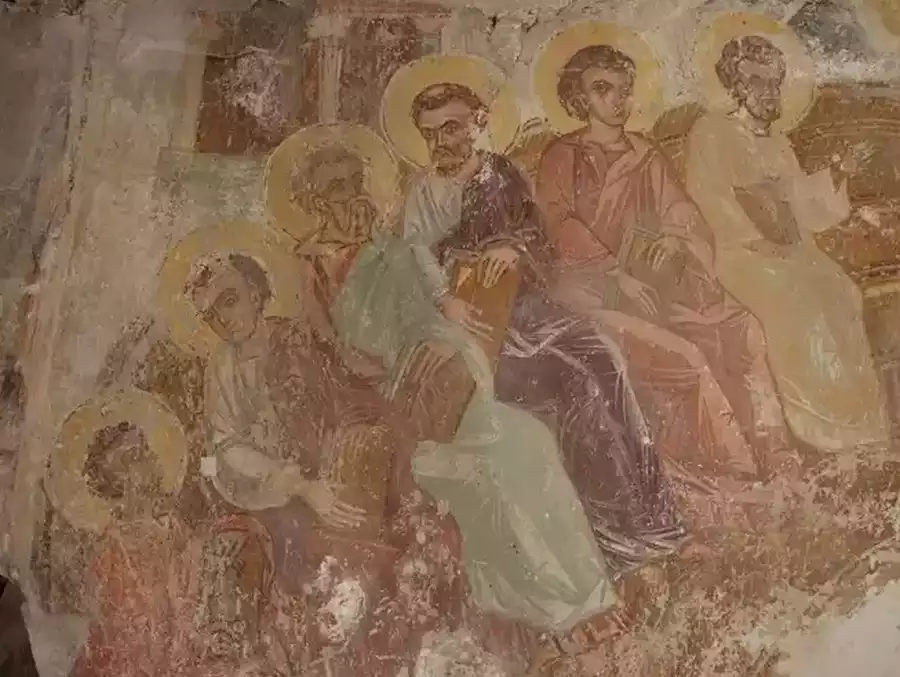
The Acts of the Apostles, often simply referred to as Acts, stands as a pivotal New Testament book chronicling the early Christian church’s development. Authored traditionally by Luke the Evangelist, it is a sequel to the Gospel of Luke, forming a cohesive narrative known as ‘Luke-Acts’. This work, written in Koine Greek, primarily depicts the […]
Paul the Apostle
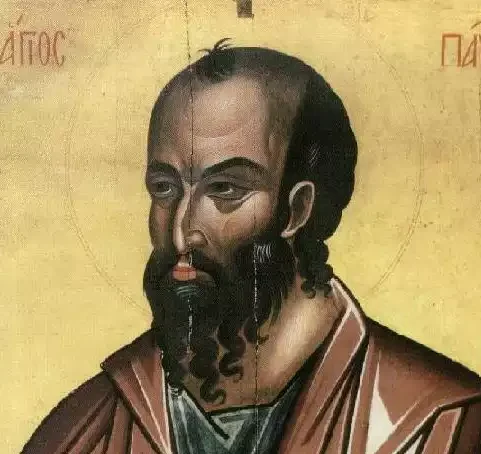
Paul the Apostle, originally known as Saul of Tarsus, was a pivotal figure in early Christianity, profoundly influencing its spread beyond the Jewish communities to a broader audience. Born around 5 AD and passing away approximately in 67 AD, Paul’s life and teachings significantly contributed to the development and dissemination of Christian doctrine, particularly among […]
Jesus Christ | The Lord
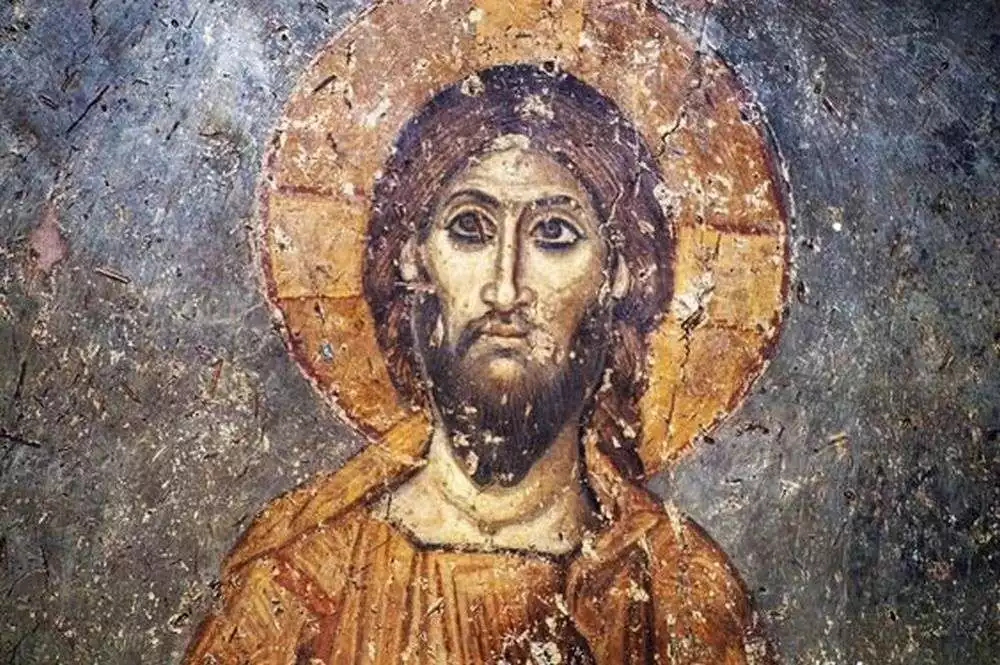
Jesus Christ, historically believed to have been born between 6 and 4 BC and crucified around AD 30-33, stands as the pivotal figure in Christianity. Revered by Christians as the incarnate Son of God, His teachings and life have profoundly influenced human history and culture. Jesus’ message, rooted in love, forgiveness, and redemption, has been […]
Holy See | Papal Jurisdiction and Influence in the Catholic Church

The Holy See, historically known as the Apostolic See, denotes the jurisdiction of the Bishop of Rome, commonly referred to as the Pope. This concept encompasses not only the physical territory of the Vatican City but also the spiritual and administrative authority exercised by the Pope over the Catholic Church worldwide. The term “see” derives […]
Catechism in Christian Churches | A Comprehensive Overview
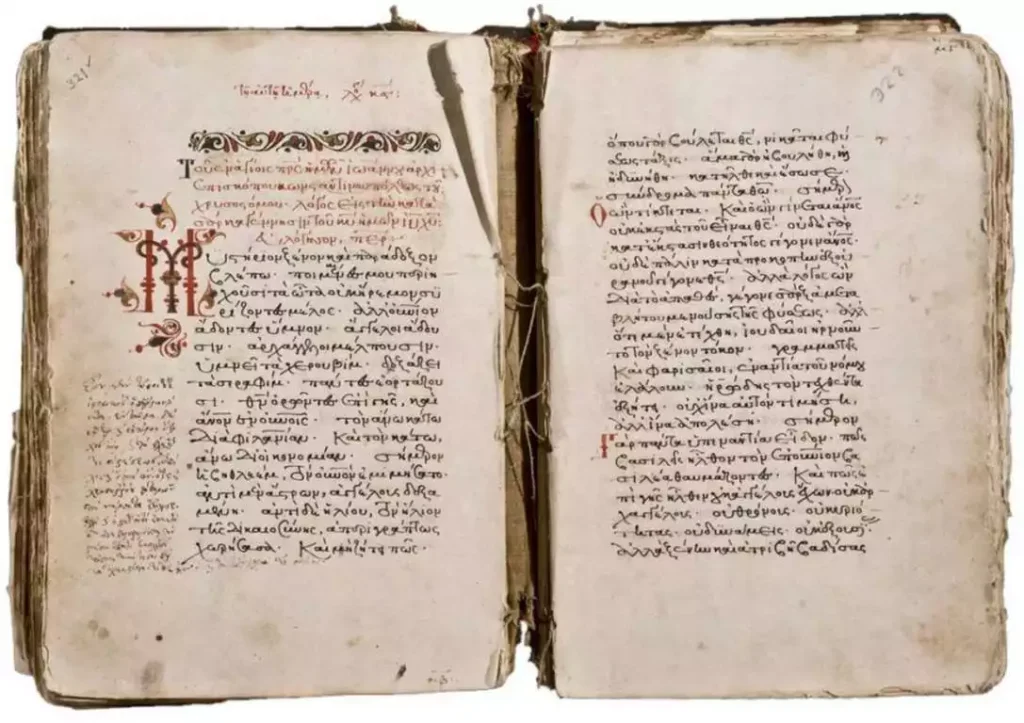
Catechism, a term deeply ingrained in Christian tradition, originates from the Greek word ‘katecheo’ meaning ‘to teach orally.’ This practice, pivotal in Christian religious education, dates back to the early Church. It served as a structured method of imparting Christian doctrines, primarily to prepare catechumens (new converts) for baptism. The use of catechisms became more […]
Penance | Exploring Its Role in Christian Theology

Penance, in Christian theology, is a religious practice involving repentance for sins, confession, and the performance of specific acts to express contrition and seek absolution. Historically evolving within Christianity, penance has been a means for individuals to reconcile with God and the community. It often includes elements like prayer, fasting, and almsgiving, reflecting a sincere […]
Severus of Antioch | Theological Influence and Legacy
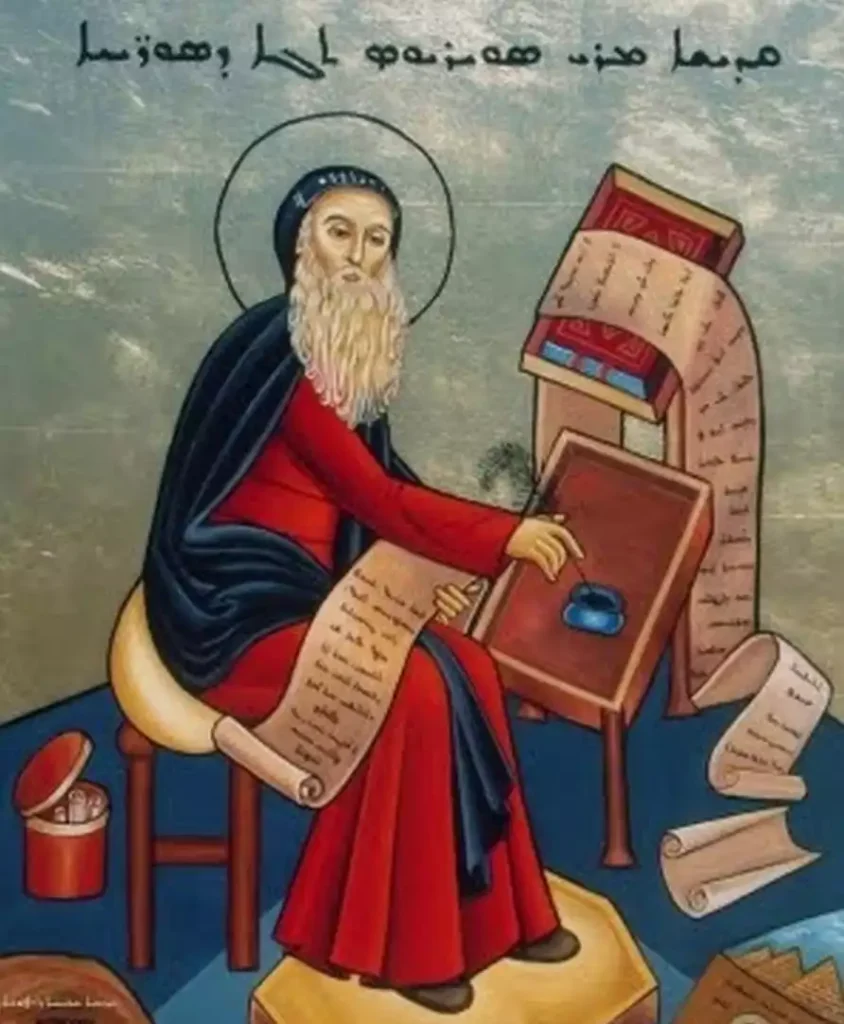
Severus of Antioch, born in approximately 465 and passing in 538, stands as a towering figure in the history of Christian theology and the Oriental Orthodox tradition. His impact resonates through the centuries, leaving an indelible mark on ecclesiastical debates and doctrinal developments. Renowned for his erudition and eloquent oratory, Severus’ contributions to Christological discussions […]
Monasticism | Asceticism in Catholicism, Orthodoxy, and Coptic Christianity
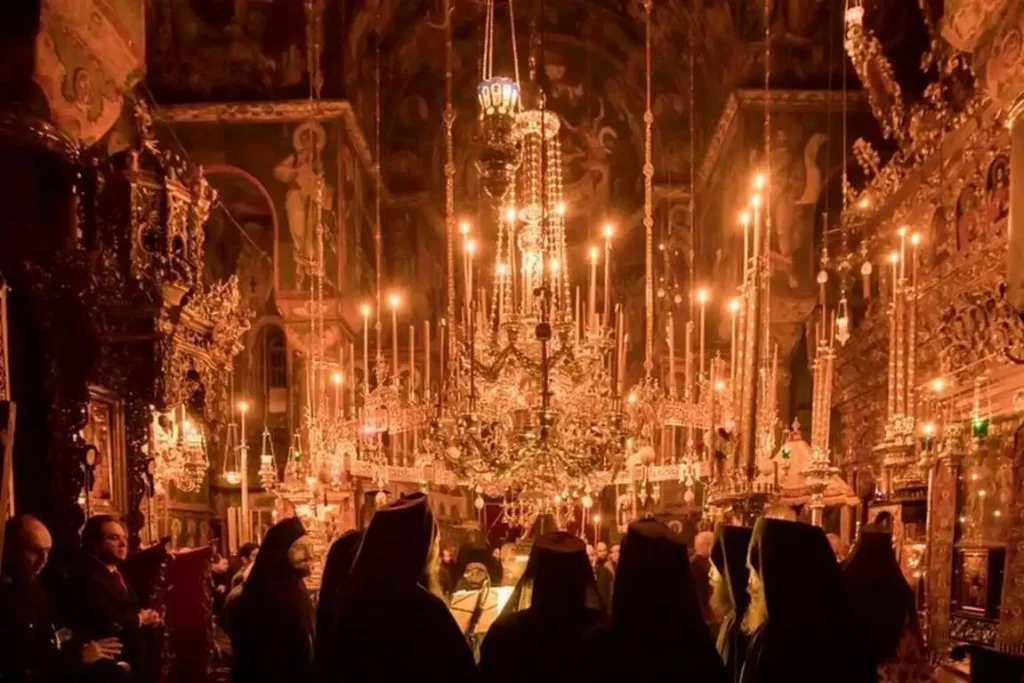
Monasticism, a distinctive and venerable aspect of religious life, particularly in Catholicism, Orthodoxy, and Coptic Christianity, entails a commitment to asceticism and spiritual contemplation. Central to this way of life is the renunciation of worldly pleasures and pursuits, in favor of devoting one’s life entirely to spiritual work. Monastic individuals, often known as monks or […]
Alpha and Omega | An In-Depth Exploration

Alpha and Omega, a phrase deeply ingrained in Christian theology, symbolizes the eternal nature of God. Rooted in the Greek alphabet where Alpha is the first letter and Omega the last, this expression signifies the completeness and unchanging nature of God, encompassing all things from beginning to end. Its profound meaning has echoed through centuries, […]
Doxology: The Articulation of Divine Praise in Liturgical Practice
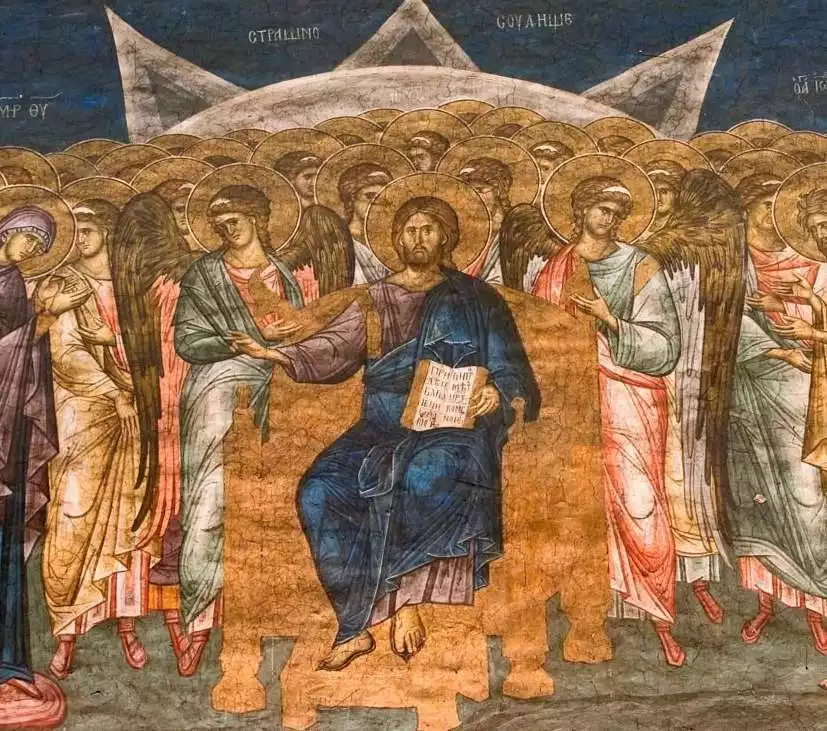
Origins and Historical Context Doxology, a term deeply embedded in Christian liturgical traditions, stands as a testament to the enduring nature of praise and worship. This liturgical formula, dedicated to exalting God, has traversed centuries, evolving yet retaining its core purpose: the glorification of the divine. The origins of doxology trace back to early Christian […]
Adrian II – Pope
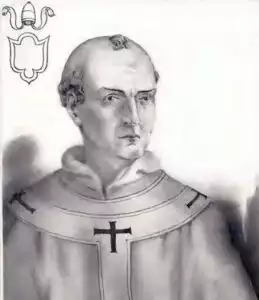
Pope Adrian II, born in Rome around 792 and passing in 872, served as the head of the Catholic Church and ruler of the Papal States from 867 until his death. Not canonized as a saint, Adrian II’s pontificate was marked by significant ecclesiastical and political developments, reflecting a period of considerable turmoil and transition […]
Arius, Presbyter of Alexandria: Controversial Theologian
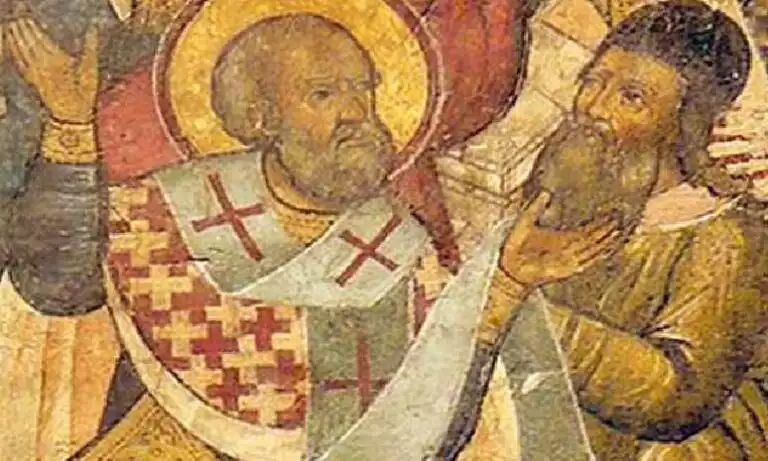
Arius (c. 256–336 AD), a presbyter of Alexandria, remains a figure of significant theological controversy. Known primarily for his role in the Arian controversy, his teachings challenged the mainstream understanding of the Trinity, sparking a pivotal debate in early Christianity. His doctrine, which posited that the Son of God was not eternal and therefore not […]
